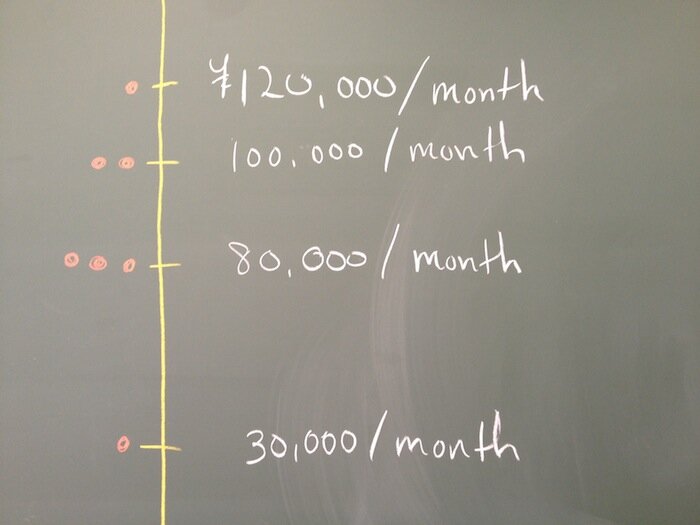Look up the word shōgaku-kin (奨学金) in any Japanese-English dictionary and you will, more often than not, be told that the word means "scholarship". It does not. Unlike scholarships in the U.S. which are awarded on the basis of academic achievement and do not have to be paid back, shōgaku-kin is a student loan.
Of the thirteen girls in my class this afternoon, seven of them were recipients of these shōgaku-kin loans which ranged from ¥30,000 per month to as much as ¥120,000 per month ($285~1,142). The most common amount was ¥80,000 per month ($762), with three of the seven receiving that amount.
As tuition runs about ¥450,000 ($4,286) per semester at the private college were I work, a loan of ¥80,000 per month is more than enough to cover the expense of education. (Now, compare that to my own university where it costs more than $60,000 a year to study.)
The loans must be paid back, of course. Students are given a grace period of six months before they must return the money, at which time they will start making monthly payments of ¥142,000 to ¥20,000 ($152~190). They have ten years to pay off the loan. Interest on the principal of the loan is negligible: less than one percent. (Again, compare that with the U.S. where I was paying a fixed 10% interest.)
All in all, it's not a bad deal.
For those of you like me who would like to avoid saddling their kids with debt so early in their lives, there is the gakushi hoken (学資保険) or yōrō hoken (養老保険) which is a kind of savings and life insurance plan. Many of these plans start at as little as ¥10,000 a month and usually have a fixed payment period of about five years. It’s a quick, painless, and safe way to sock away money for your kids’ education.

